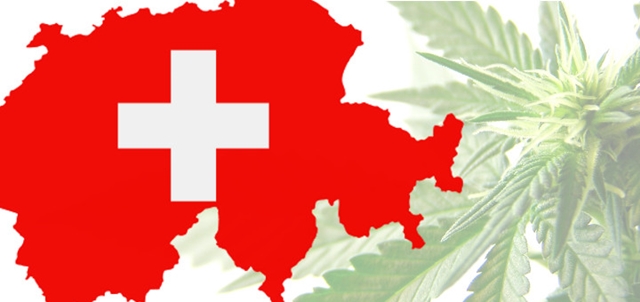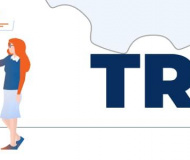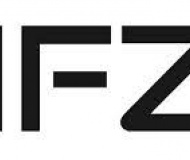Production and sale of cannabis products containing products in Switzerland
Date added: :
07.06.2019

In Switzerland, the production and sale of a wide range of cannabis-containing foods (cannabis) are permitted. The Bureau of Health notes that, unlike THC (tetrahydrocannabinol), CBD (Cannabidiol) is not subject to the Narcotics Act (NarcA, CC 812.121), since it does not have a comparable psychoactive effect to THC.
The cannabis plant (Cannabis sativa or Cannabis indica) contains more than 80 CBD. They have the chemical structure of terpene phenols and are found only in the cannabis plant. Cannabinoids are found in plants primarily in the form of carboxylic acids.
The most important and most studied cannabinoid is THC. This substance is responsible for the psychotropic effect of cannabis. Another important cannabinoid that is found in plants in large quantities is CBD. Unlike THC, it does not have a psychoactive effect. However, this does not mean at all that CBD can be simply added to random drugs at will arbitrarily.
Products containing CBD can be sold legally only if it complies with certain laws. The range of products containing CBD is extremely extensive: it includes raw materials such as cannabis kidneys or powder with a high content of CBD, extracts in the form of oils or pastes, ready-to-eat products such as capsules, food additives, e-cigarette fluids, tobacco product substitutes, aromatic oils, chewing gums, ointments, etc.
Depending on which category the product belongs to, the manufacturer must comply with the relevant Swiss legislation. If such legal requirements are not met, then the product cannot be distributed in the Swiss market.
Products are classified on a case-by-case basis taking into account all relevant factors, including composition, intended use, dosage, etc. Responsibility for control is borne by various law enforcement agencies depending on the classification of the products.
Products distributed as raw materials
Materials containing CBD that are sold as raw materials for the production of various products without an intended end destination cannot be unambiguously qualified. However, the Swiss legislator obliges the producers of such raw materials to comply with the legislation that relates to the final product for the production of which this raw material will be used. If it is impossible to establish the intended use, the raw materials containing CBD should be placed on the market in accordance with the legislation governing the supply of chemicals containing CBD.
Products offered as chemicals
The Chemicals Act applies mainly to packaging and labelling of chemical products.
Placement of chemicals on the market is carried out on the basis of self-regulation. This requires manufacturers to evaluate whether substances or preparations can threaten a person’s life, health or the environment. To this end, manufacturers must classify, package and label the product in accordance with the provisions of the Chemicals Ordinance (ChemO, CC 813.11) and prepare a product safety data sheet.
Products containing CBD can be sold legally in the form of, for example, aromatic oils. However, if the product involves other uses (that is, it can, for example, be used as a ready-to-eat product), then the offer of such a product should also be regulated in accordance with the provisions governing this other use. For example, a “flavoured oil” containing CBD is sold in a cartridge for electronic cigarettes: in this case, the legislation on chemicals (as part of product labelling) and the law on ready-to-eat products (as part of the content) should be applied.
Products offered as food
In accordance with Article 4, paragraph 1 of the Foodstuffs Act (FSA), under food products are any substances or products that are intended for human consumption in processed, partially processed or unprocessed form. Drugs, drugs and psychotropic substances are not considered food products (Art. 4, p. 3 FSA)
The main condition for the admissibility of the food product to the public offer is that food must be safe (Article 7 FSA). This means that they can be neither harmful to health nor unfit for human consumption (Article 8 of the Food and Utilities Ordinance [FUAO; CC 817.02]).
However, foodstuffs that until May 15, 1997, were not used for human consumption, neither in Switzerland nor in an EU Member State, should be allowed to consume FSVO (Federal Food Safety and Veterinary Office). CBD-enriched foods (for example, CBD-enriched cannabis extracts, cannabis seed oil with CBD supplements, CBD nutritional supplements) are classified as new foods (article 15 of FUAO) and require permission (section 16 of FUAO).
As part of the authorization process for new products, FSVO checks whether the product is safe for human health. The first condition for obtaining a permit is that the product is not subject to the legislation on therapeutic products (Art. 2, para. 4, para. D FSA).
Products offered as tobacco substitutes
Following the food law, tobacco substitutes are subject to the Ordinance of tobacco products (TobO; CC 817.06). Manufacturers can sell cannabis-containing tobacco substitutes if they have low TCG content (<1.0%).
If this requirement is complied with, then the person, before placing the product on the market, must register this particular product with the Federal Office of Public Health.
Moreover, according to Art. 3, p. 1 of the Swiss Ordinance on tobacco products, tobacco substitutes must meet all the requirements for those tobacco products that they replace. For example, roll-ups that replace tobacco cigarettes should have graphic warnings about the dangers of smoking and, under regular use, should not pose a direct or unexpected threat to health.
The third requirement is that substitutes for tobacco products should not cause psychotropic effects. Swiss legislation states that tobacco substitutes should not contain a THC of more than 1%. However, cannabis with a total THC content of less than 1.0% is not considered psychotropic and can be sold as a substitute for tobacco.
The manufacturer of tobacco product substitutes must, continuously, report to the Federal Office of Public Health and allow production management personnel to conduct on-site inspections. The Swiss Federal Office of Public Health reasonably states that tobacco substitutes may contain “material that presents an unexpected health risk.” Moreover, before placing products on the market, the interested company must provide evidence and documents confirming that the product does not pose a direct or unexpected threat to health and does not have any psychotropic effects.
Thus, subject to the above standards, a Swiss company can produce and sell cannabis-containing products on the territory of Switzerland. It is necessary, however, to take into account that income derived from the sale of tobacco substitutes is subject to the so-called tobacco tax levied at a rate of 30%.
With Law and Trust International, you can register a company in Switzerland in the form of a GmbH (Limited Liability Company) or AG (Joint-Stock Company).
















